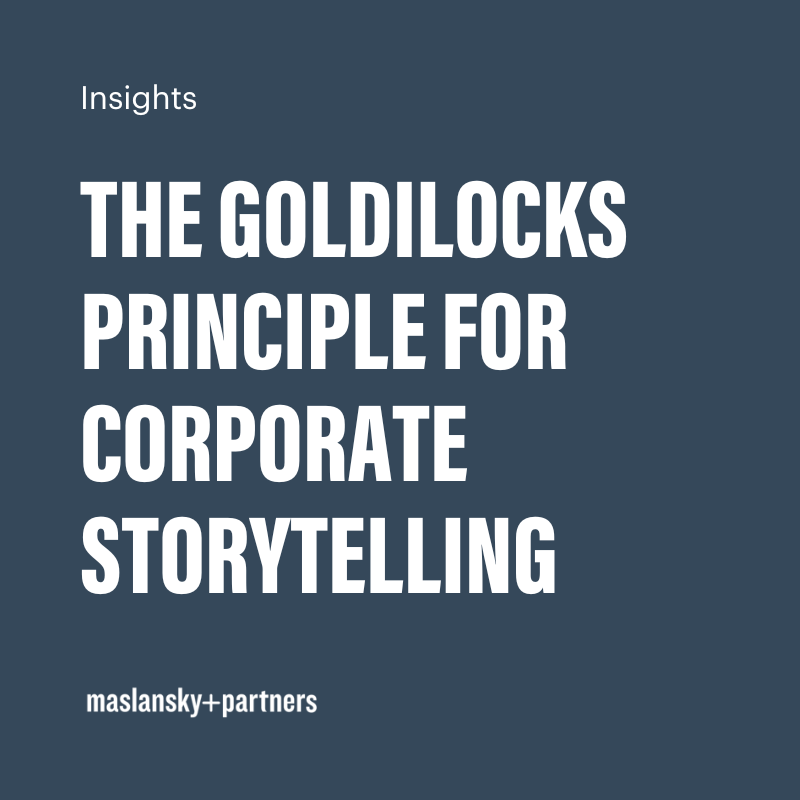2021’s Language Strategy Trends
In 2021, Merriam-Webster added “vaccine passport” and “dad bod” to the dictionary. But this year also brought other more subtle–and more significant–changes to the way the world uses language.
So far, this new decade has felt like a parade of controversy and catastrophe. The endless tide of bad news is fundamentally changing the way people perceive companies and react to those companies’ messages. As language researchers, we get a front row seat to watch this evolution. As consultants, our job is to help companies track these changes and make essential shifts to their communication strategy to keep up.
Here are a few of the biggest trends we helped clients navigate this year:
CRISIS COMMS IS ABOUT PREDICTING; NOT REACTING.
As m+p Senior Vice President Maria Boos says:expecting the expected is as important as expecting the unexpected. With heightened public scrutiny and an online conversation that moves at Tweetspeed, it’s not a matter of if a company is going to get called out. It’s a question of what they’re going to get called out for. We used to help clients create a reactive message when something went wrong, but that approach is too slow for today’s digital world. Successful crisis comms depends on being prepared before the conversation starts. Companies need to diagnose their potential weaknesses, understand their audience’s concerns, and have the tough internal conversations necessary to prepare a library of consistent, thoughtful messages ahead of time.
WAITING OUT THE NEWS CYCLE IS EASY, BUT IT ISN’T A WIN.
A “scandal” used to be a surprise. Today, each new scandal is just another float in “the world is the worst” parade. With a hundred new sensational headlines every morning, it’s tempting to think the stakes are lower and you can simply wait for people to move on to the next news cycle. In reality, the risk has simply changed. The narrative that corporations do not care about employees, customers, or the world has gained steam this year. When its your turn to get called out for something and you miss your one-day window to answer meaningfully, the current sweeps you away and the world files you away in the “bad guys” folder with everyone else. Your tiny moment in the spotlight is your one chance to respond and fight for a space in a different drawer of the cabinet.
“CANCEL CULTURE” IS DRIVING CAUTION, BUT AN EQUAL RISK IS IRRELEVANCE.
Against this backdrop, companies are walking on eggshells. They want to stand out, but they worry even the tiniest misstep could put a target on their back. This fear drives people toward the middle lane. We’ve seen companies put out a lot of lukewarm, watered-down language. Sometimes you can almost see the red ink stains from rounds and rounds of review where a hundred stakeholders stripped the copy of anything approaching a strong stance. The concern is understandable. But we like to remind clients: the opposite of love isn’t hate, but indifference. I’d rather have a message some people love and other people dislike than one no one cares about at all.
COMPANIES TOOK A STAND ON A RANGE OF ISSUES, BUT MANY ARE BEING CALLED OUT FOR BEING TOO CORPORATE (IN THE WORST POSSIBLE WAY).
Amidst an increasingly politicized environment, a growing pandemic and an exploding Black Lives Matter movement, companies were called to action. They were pressed to create DEI and CSR initiatives, often for the first time. But this year, what was looking like a promising trend is starting to be viewed with increasing skepticsm. Language once seen as progressive is now seen as corporate. The end of fence-sitting is upon us, but what about the end of empty actions? Companies made Juneteenth a holiday but haven’t approached systemic racism at its core. Others will post rainbow pictures in the month of June only to take them down when the month is over, while supporting anti-LGBTQ+ lobbyists in the background. While cancel culture itself creates backlash, clients, customers, and employees aren’t letting companies get away with standing on the sidelines. There’s an inherent part of business this year that has to do with taking substantial actions rather than performative-but-hollow actions. This means leveraging powerful, tangible, personal language to back up the things you’re actually doing. When it comes to taking action, language is as important as what you’re doing on the ground — they’re partnered, not siloed. And when in concert, amplify each other and gives you a winning message.
EMPLOYEES NEED TO BE A PRIORITY MESSAGING TARGET.
This year, membership in the Reddit community “r/antiwork” grew by almost 300% to a total of nearly 1.5 million members. People will be debating for years the exact combination of factors that’s contributing to the “Great Resignation”–wages, rights, remote work, re-evaluation of priorities in the face of a pandemic. Whatever the exact cocktail of concerns is, one thing is clear: companies can’t take their employees engagement and enthusiasm for granted. Internal communications used to feel like an afterthought. They were just one small piece of the corp comm or HR function. This year, some of our most challenging and large-scale communication projects were internal ones, working closely to understand employee’s concerns and craft messages and plans to engage them.
THE ONE MESSAGING FRAME THAT’S WORKING: PRACTICALITY.
This year, across products, industries, and projects, we saw one approach to messaging resonate again and again: pragmatism. In the face of frustration and disappointment, people tire of big, bold promises. Instead, they respond to smaller-scale, humbler messages that recognize the difficulties of the moment and are realistic in their goals. For example, people today say they prefer “financial security” to “financial freedom”–where only a few years ago the opposite was true. In our message testing, we start to see simple, sturdy words like “actual,” “practical, “real,” “incremental,” and “everyday” start to be imbued with new power. Too much has gone wrong , whether it’s scientifically, politically, or technologically, for people to buy into unbridled optimism. They can’t be excited about a new candidate when the last one let them down, or excited that a new app will change the world when they’ve seen how every technology platforms brings new challenges. Across the board, we advise clients to downshift their tone a few registers and focus on acknowledging challenges, elevating small, substantial steps, and promising practical progress instead of grand visions or benefits.









